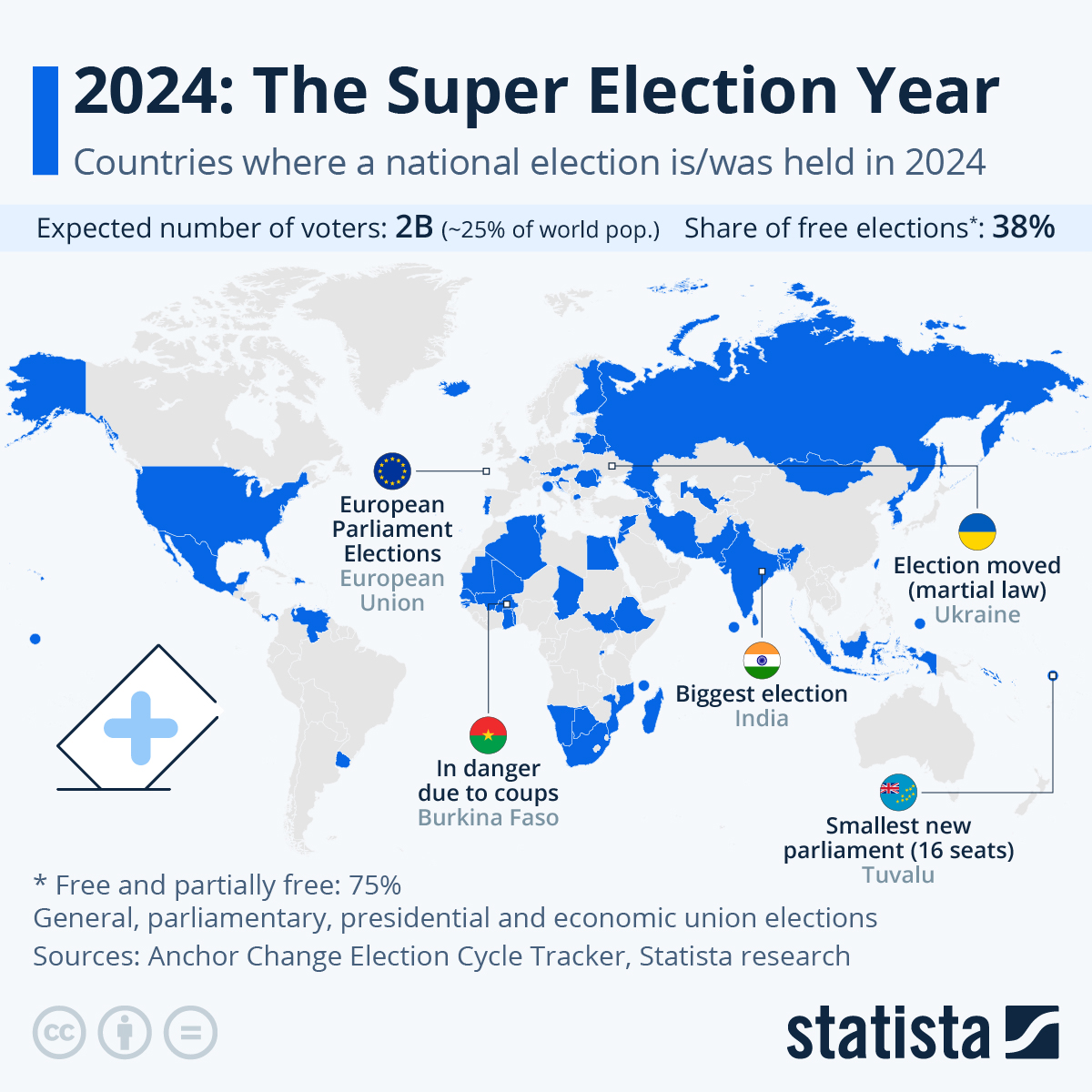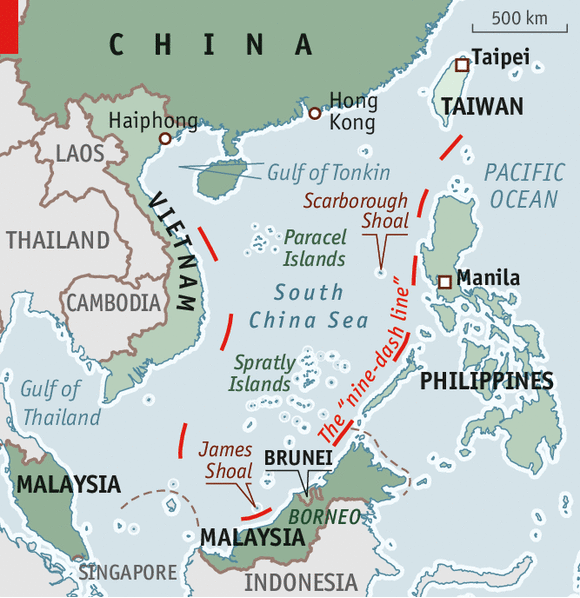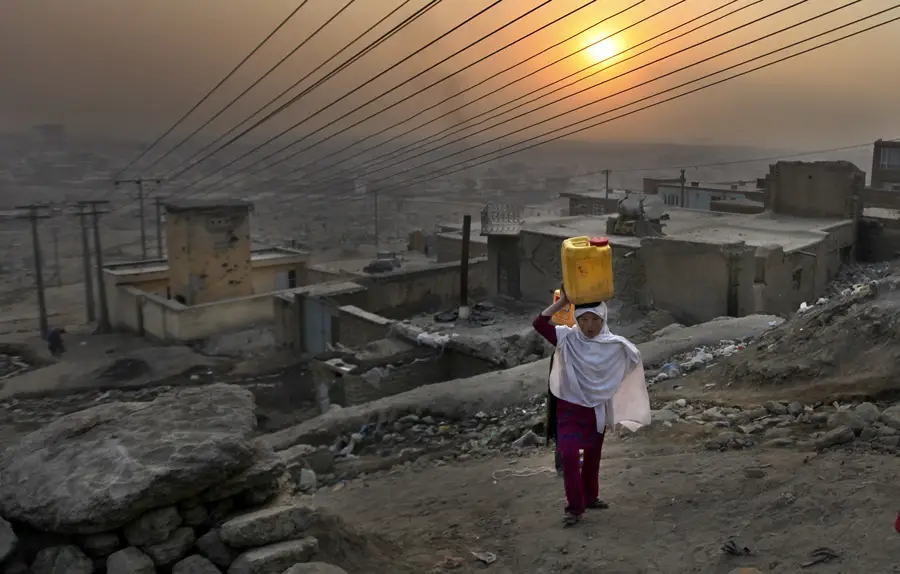We’ve all been hearing a lot about the US 2024 presidential election lately, but the United States is not the only country with important elections upcoming. Many countries internationally are going through a shift in leadership, and the outcome could determine inter-country relationships and the quality of life for civilians everywhere. Since not every election is an accurate representation of the wishes of the people, TIME magazine’s freedom & fairness score, based on the index from the Varieties of Democracy, helps illustrate the reliability of the decisions. For context, the score is between 0 & 1 and the US elections received a .83/1.
Some major elections are occurring in Asia including Taiwan, Bangladesh, North Korea, India, Pakistan, Indonesia, and Iran. This January, the people of Taiwan chose a Democratic Progressive Party member, William Lai, in a fair election. This was particularly controversial because Lai supports separatism, or amputating the island from China. China has long restrained Taiwan from becoming a sovereign state; this new election means Taiwan faces the threat of invasion from Beijing. Lai will have to balance honoring his intention of separating while also keeping China pacified.
In Bangladesh, Sheikh Hasina was reelected as prime minister, following the main opposing party boycotting the election. The boycott was the result of suppression of free speech and Bangladesh only received a freedom & fairness score of .16. Similarly, North Korea’s election for the Supreme People’s Assembly is thought to barely be an election and its score was even lower, at a .14.
The projections for India’s general elections show Narendra Modi’s return to leadership as prime minister. However, there is fear that the popular prime minister will try to gain favor from one cultural group, which could polarize the country and cause tension. In the neighboring country of Pakistan, the country has fallen into mayhem following the arrest of the former prime minister, Imran Khan, and his futile attempts to return to power. Recently, a Pakistani official admitted to election rigging, resulting in more protests. A freedom & fairness score of .3 does not bode well for a country already plagued by military terrorism, floods, skyrocketing inflation, and runoff terrorism from Afghanistan.
Indonesia, a populous archipelago country of 279 million, is struggling to maintain the status of democracy, despite high voter turnout. Rated at a .68, its elections are unfortunately predicted to put a damper on Indonesian citizens’ quality of life. Lastly, Iran’s parliamentary election will likely have a more direct effect on the United States and result in Iranian leaders who will attempt to eliminate the US presence in the Middle East. The election is heavily influenced by the Guardian Council, and Iran’s freedom & fairness score was just a .32.
Latin America will see 5 countries hold elections, all fairly democratic leaning, though El Salvador may see a regression towards authoritarianism. As a region, Latin America received an average TIME magazine score of .58. Meanwhile, in Africa, about 20 countries are voting in new leaders. Although this is a very generalized figure considering Africa’s size and diversity, the average freedom & fairness score was .34. Experts believe a more open floor is needed for debate before these polls can truly make a difference and uphold democracy in Africa.
One problem has been the postponing, or even canceling of elections due to conflicts; Sudan has no election in the foreseeable future due to a humanitarian crisis, while Mali and Burkina Faso’s were postponed because of coups. West Africa, South Sudan, and South Africa are continuing to brave the election process instead of playing it safe and keeping the systems that have somewhat worked in the past. The African National Congress, the party of Nelson Mandela, is predicted to be unseated in South Africa, which would be historical. On the other hand, Rwanda has had the same president for 2 decades, and the unanimous agreement upon him is unsettling to scholars.
The fact that, globally, this year will see the most elections ever is a good sign! More and more people around the world are getting the chance to have their voices heard. Equality isn’t something that can fully be reached but this is progress. As TIME magazine’s freedom & fairness scores demonstrate though, elections by themselves aren’t enough and there has to be integrity in the system for it to work. Whether the 2024 elections will be free and fair after all, the results are certain to be impactful around the whole world.
Sources:
- The Guardian- Senior Pakistan Official Admits Election Rigging As Protests Grip Country
- TIME- Elections Around the World in 2024
- United States Institute of Peace- The Pivotal Elections of 2024: Key Races That Will Shape the Global Landscape
- Voice of America- Elections in Africa Not Off to Good Start
- CNN- The US and Iran are dangerously close to confrontation in the Middle East. Here’s where they both operate







